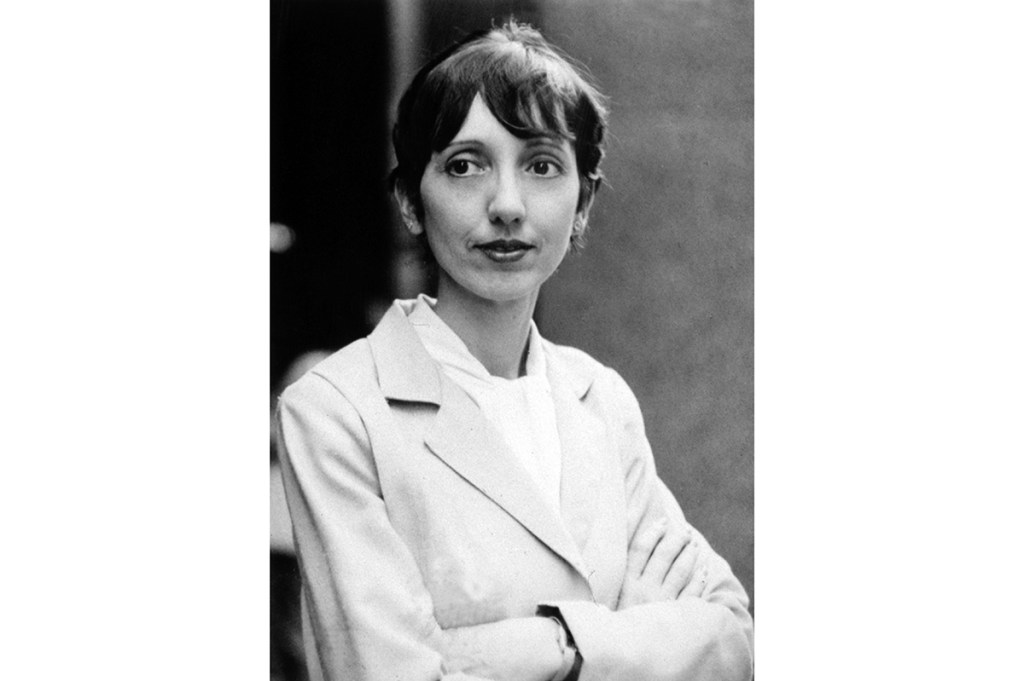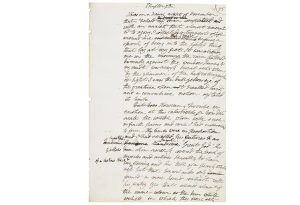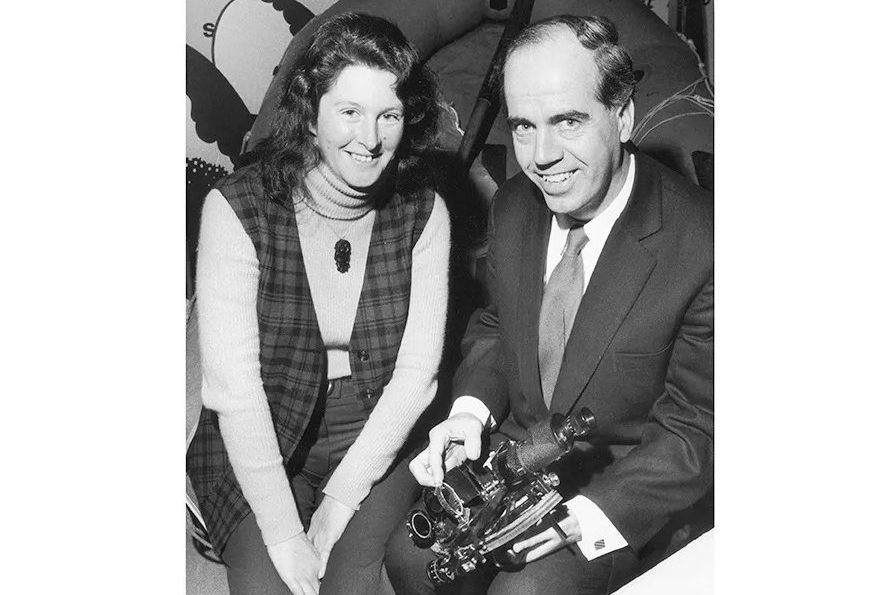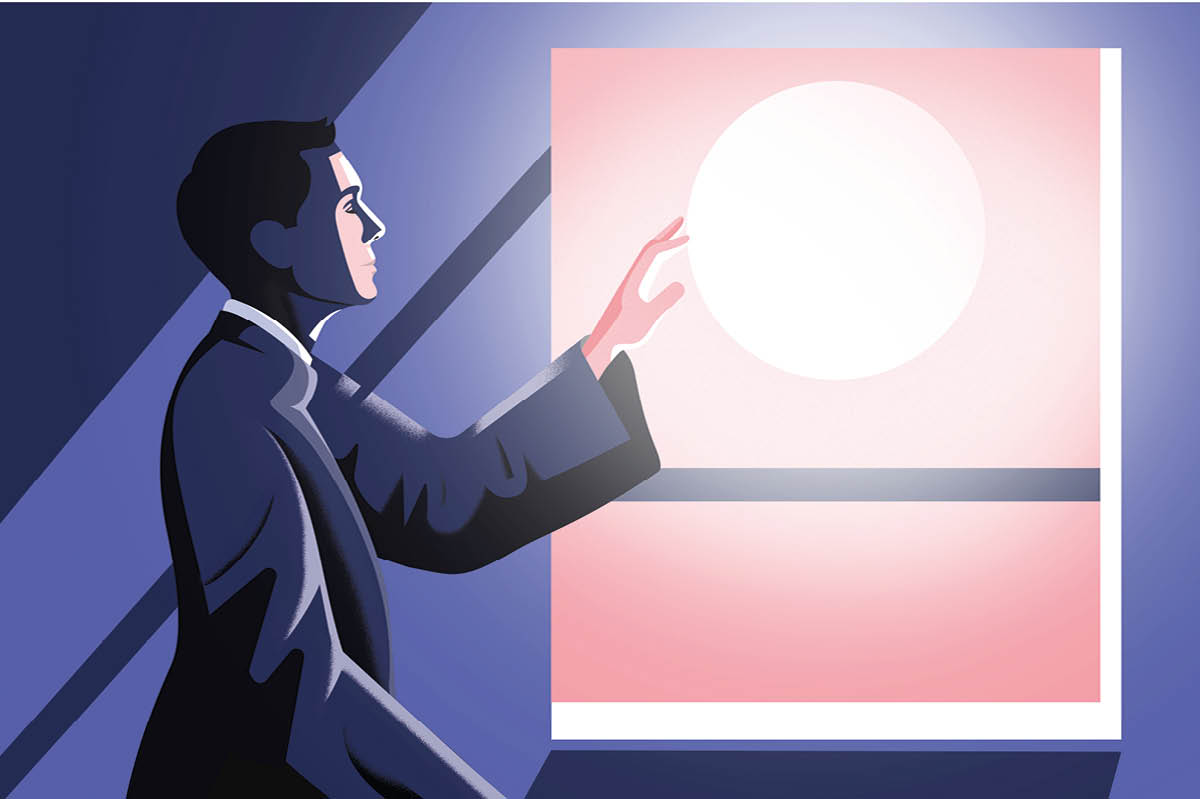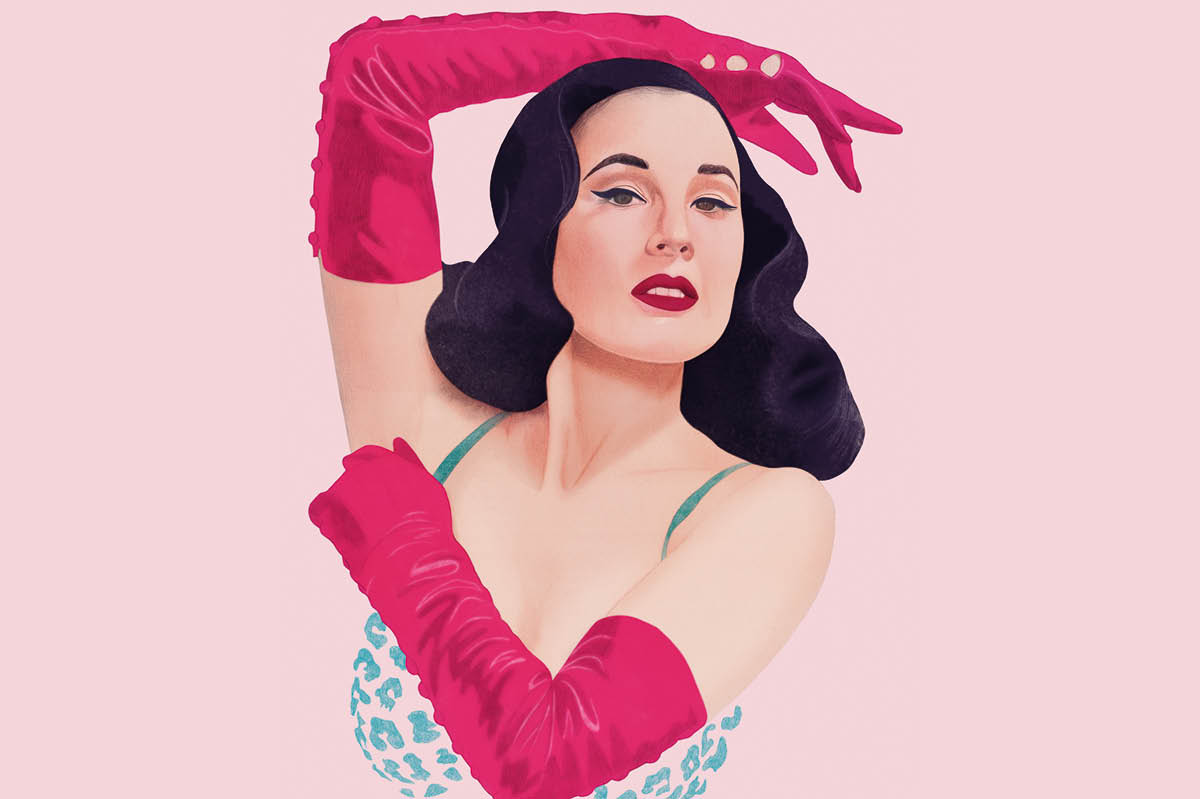Midway through my conversation with the eighty-four-year-old Joyce Carol Oates, one of the most prolific writers America has ever seen (fifty-eight novels, plus plays and children’s books), and now one of its more unpredictable tweeters, with over 226,000 followers, I ask what it’s like being having been one of the country’s “major” literary figures for so long.
Oates’s classic 1966 short story “Where Are You Going, Where Have You Been?” about the kidnap and possible murder of a sixteen-year-old girl, and her 1992 Pulitzer-nominated novella Black Water demonstrate her grasp on the dark side of the twentieth-century American psyche. But it’s Blonde (1999) a psychologically intense fictionalized account of Marilyn Monroe’s life, that is considered a twentieth-century great. It’s on this book that Andrew Dominik’s controversial Netflix movie, released at the end of September, was based.
The internet creaks and pauses, and Oates’s poised, slightly tilted head — with its delicately lipsticked mouth, and slender neck — is suspended in the ether. I wonder if the Robert S. Berlind ’52 professor of the Humanities at Princeton will give me one of those witheringly unimpressed replies I’ve seen dished out to other interviewers for asking silly questions. Instead, she responds with a mixture of wry, meditative humility, a touch ironic, a touch scathing and a touch remote. I breathe a sigh of relief.
“Well, it’s funny to think of myself as major,” she says smoothly. “I live with two cats and, you know, if you’re a cat person, you’re just basically the servant. No, I never really thought of myself too much in those terms when I came along as a young writer. John Updike was very, very famous. John Cheever. Bill Styron. Norman Mailer. Yeah, I guess I probably never ever saw that I was on their level. And certainly in terms of awards and prizes, they’ve always gotten many, many more than most women writers. But Toni Morrison came along later and just kind of swept away all these distinctions. And she’s a very great writer and a difficult writer. She’s really not an easy writer. Toni, I think, just transcended categories.”
Oates seems prone to nudging herself out of the center, so I try pushing her back. Does she feel annoyed to have been passed over for a Pulitzer and a Nobel, both of which, for decades, she has been tipped to win? Apparently not. “I think many, many writers are really just happy somehow to be published,” she says, again with an ironic Zen lightness under which, it soon becomes clear, a store of majestic, perspective-giving grief lurks. “I think it’s a great honor even to be considered for something, you know. I come from very humble beginnings, actually. And my personal life, being a widow and being alone during the pandemic, I learned just to be grateful, to be able to breathe. So I don’t really think too much about these other things.”
Oates was born in 1938, and grew up in a farming community in upstate New York. Her career was foretold when she was fourteen and a library worm, her grandmother, gave her a typewriter. She wrote short stories, won prizes, and a scholarship to Syracuse University followed. Could someone like her have made it today, during what some suggest is an age of declining social mobility? “Well, much in our lives is chance,” she says carefully. “If I had been born a little earlier, I wouldn’t have been able to go to a good school. I wouldn’t have been able to go to college, I’m sure. And there weren’t a lot of the kind of scholarships that there are today. So I was born at the right time for me. A lot of things happened that were just accidental. I was lifted out of a farming community with a very poor school. And then I was able to go to a city school where the teaching was much better. And so that was pure luck. It had nothing to do with my parents. If I was born after that time, I would have definitely gone to school and then I would have the same trajectory that I have now.”
Given how concerned her books are with the brutal treatment of women, I wonder what kind of experiences she, a woman in a macho man’s world, has had in the industry. But she downplays any serious sexism. I mention to her a quote from a recent discussion with Margaret Atwood in which she said that “there has been very little progress” in America. Is this really still the same country that tore Marilyn Monroe to shreds?
“That girl today would go to college or a university,” says Oates. “She wouldn’t have to bleach her hair and she wouldn’t have to work in a munitions factory. She wouldn’t have to marry the first person that came along. She might not get married at all, and she wouldn’t have that fixation on having a baby so very much. 2022 for many women is much better. America has changed enormously for some people, but it’s really complicated for some people, though particularly in the blue states, it is a much better time, there’s no doubt about it. There are women who are presidents of universities and have been for the last twenty years, women professors all over. There are more women, I think, than men in law school and in medical school. Most of my doctors are women. That was not the case in Marilyn Monroe’s time.”
Her most recent book, Babysitter, written during the pandemic, is about a serial killer in 1970s Detroit. It was called “risk-taking and unforgettable” by the Guardian, with, in the New York Times’s words, “tension thick enough to inspire several heart attacks.” Was Oates satisfied with its reception? Here I get the dreaded acerbic reply to an apparently innocuous question.
“You’re asking me if I’m satisfied? You know, I wouldn’t even think that I might not be satisfied. I mean, I don’t have a choice about it. Basically, if I can breathe and I can wake up I’m satisfied. You get to a point where if you’re just going, you’re vertical, you’re quite happy. I was probably happy when I finished the novel. I was very anxious and fraught with all sorts of emotions. I was alone in the house and it’s filled with my late husband’s things and his photographs on the walls and all that. I was in a haunted house and I found every day like a ski run, like, I cannot get through this day without something horrible happening. And so the fact that I finished the novel at all was a great accomplishment to me.”
The pandemic’s dreariness largely over, with a return to in-person teaching at Princeton and Rutgers, I wonder what Oates makes of the storm unleashed by Netflix’s Blonde, whose making she had nothing to do with. Beautifully shot, the focus is on the violent waves caused by Monroe’s childhood trauma — bodily horror and sexual assault, and very little of Monroe’s other calling cards, such as professionalism or politics. As the media fell on it as an exploitative work of male misogyny, Oates tweeted her support. “I think it was/is a brilliant work of cinematic art obviously not for everyone. Surprising that in a post-#MeToo era the stark exposure of sexual predation in Hollywood has been interpreted as ‘exploitation.’ Surely Andrew Dominik meant to tell Norma Jean’s story sincerely.”
A vicious Twitter spat developed between Oates fans and die-hard defenders of the Monroe faith, with one particularly unpleasant meme involving the assertion that Oates, as a “literary non-hottie” could never understand, let alone do justice, to a woman as beautiful as Monroe. Other foes dredged up a 2000 interview with the New York Times in which Oates had said Monroe was “complicit” in her fate.
Did she really mean this? “Oh, yes, definitely. She didn’t really have to go back to Hollywood. We’re all complicit, to some degree. She made some decisions that were unfortunate. But at the same time, she was giving in and she was doing what her husband wanted her to do. Everybody’s complicit to some extent.” And then, Oates distances herself, with resignation and elegant disdain. “It doesn’t really mean anything, you know? But I think that once there is a certain hostility toward any work of art or popular entertainment or performer, that it’s like a mob war. It doesn’t really matter, because if there’s hostile intention, any words that you say [will be used against you].”
Her loss of two husbands in eleven years — Raymond Smith, co-founder and editor of the literary journal the Ontario Review, and Princeton professor Charles Gross — seems to have made her impervious to the jibes and verbal assaults of Twitter storms. Indeed, she has taken to posting occasionally downright anti-woke views that have caused shockwaves among left-wing online mobs.
Among her zingers, which ten years ago would hardly have been noticed, let alone become fodder for international news headlines, she wrote in July: “a friend who is a literary agent told me that he cannot even get editors to read first novels by young white male writers, no matter how good; they are just not interested.” The ire was instant and voluminous: with thousands on Twitter and in national news outlets mocking Oates for appearing to pity white men. But she doesn’t care: Twitter, she says, is not “significant” — especially not compared to matters of love and loss.
“You know, tomorrow morning you can hear that that your closest friend has a terminal cancer,” she reminds me. But also, reality is, perhaps, not so bad. Having heard rumors about the disturbing excesses of American campus cultural politics, I ask what it’s like on the ground, so to speak, at Princeton, and Oates lights up. “I have a wonderful group, a workshop of ten young undergraduates,” she says, noting that many are the children of immigrants. “Their writing is very lively and powerful because they have a genuine subject.” In other words, they are getting on with it.
Which is just what Oates has been doing all her life, and will continue to do.
This article was originally published in The Spectator’s December 2022 World edition.



